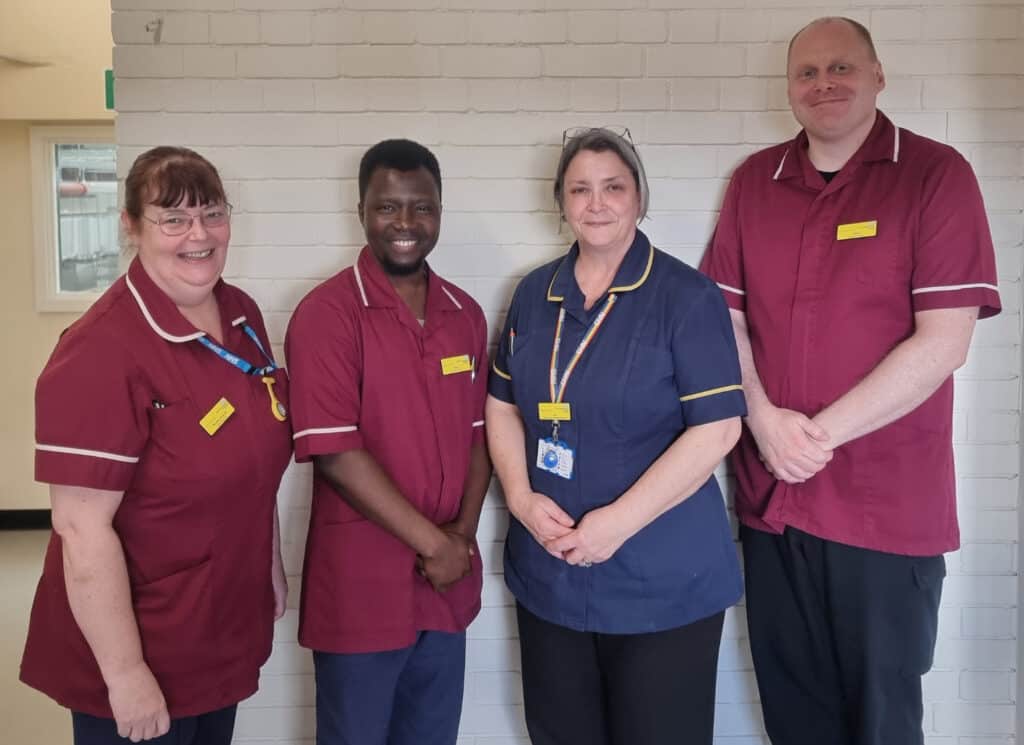Healthcare support workers play a pivotal role within our NHS. At the University Hospitals Plymouth NHS Trust, they are a crucial part of the team providing support to a network of doctors, nurses and other healthcare professionals in looking after the health and wellbeing of patients.
In order to ensure there are regular numbers of support workers available to positively impact the quality of life for patients, the Trust has forged a partnership with City College Plymouth. For almost two years, the College has provided Level 2 Support Worker Apprenticeships for new to care staff, allowing apprentices to divide their time between learning on-the-job with experienced professionals and attending College, to gain the essential knowledge they will need during their careers.
The Trust is one of just a few across the UK to fulfil four important roles in the health and care system: community and social care, mental health support, acute, specialist and tertiary services. Through their 11,500 staff they serve a population of about two million people, each of whom can access the specialist services they provide through a number of hospitals, as well as clinics and care centres.
As the Clinical Apprenticeships, Support Worker Development Programme and Clinical Skills Manager for the Trust, Jo Hickey is responsible for overseeing new members joining the Trust, ensuring they receive the appropriate training and relevant information to support them at the start of their professional journey.
Healthcare support workers will work in a variety of environments and hopefully progress within the Trust, so a good early grounding for new joiners is important. Jo said: “To be able to provide a level 2 Apprenticeship for our staff, we have worked closely with City College to develop this course and forged a good relationship to ensure quality delivery to match the on-the-job requirements. The College’s reputation for Apprenticeships was key, as was its proximity. Being close by and having great facilities really works for our apprentices, who need to be able to access courses easily,” she said. Course work is completed at the College, while all their workplace learning is within their clinical role. The skills covered in their Apprenticeship extend beyond clinical activities to meet the occupational standard which include communication, policies and procedures, wellbeing and support, administration, problem solving and health and safety.
Jo says that the relationship her team and the College has developed has reaped numerous benefits. “Good communication between us is imperative to give our apprentices the best outcome to their Apprenticeship. The bonding and peer support that apprentices get at College is vital because it teaches them how to work as a team and how to support each other, which is so important in something like a Healthcare Apprenticeship as it gives them space to exchange views and experiences with their contemporaries. Through the College, they tend to form these relationships which are necessary to them completing their Apprenticeship efficiently and in good time.”
And she is quick to praise how the College operates its Apprenticeship programmes: “Healthcare support workers are a crucial part of our healthcare teams and they need to know how they can improve through learning. The Apprenticeship has to match our clinical work for our apprentices or it just won’t work, which is why the relationship with the College is so important. We communicate regularly and effectively, they are great at responding when asked, they are solutions-focused and the delivery is tailored to our apprentices’ needs.”



